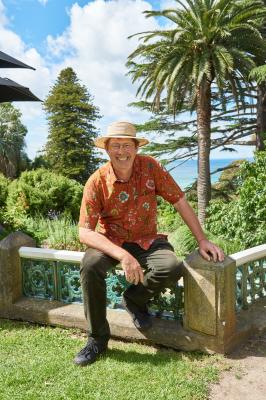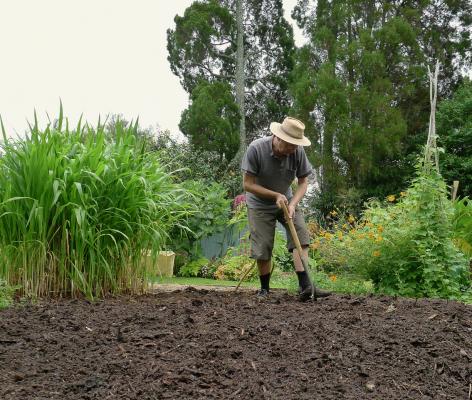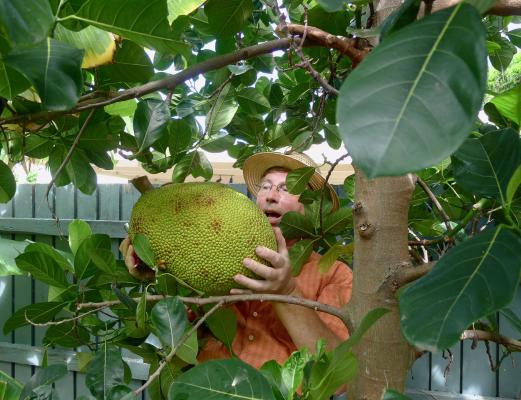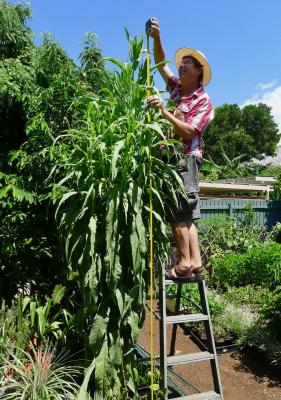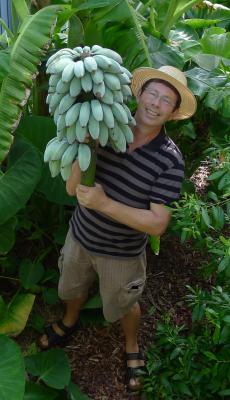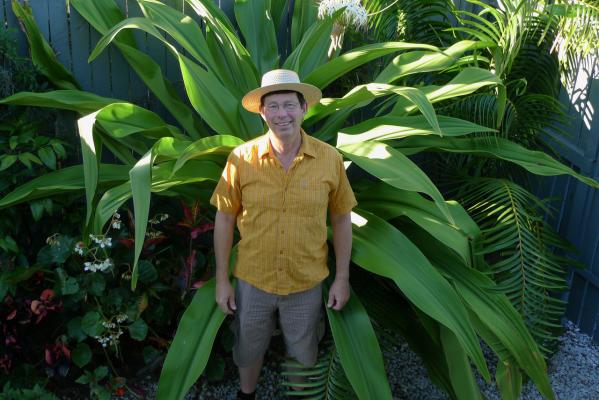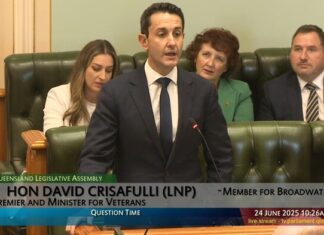Five Beginners Tips from Gardening Australia’s Jerry Coleby-Williams.
1. The most important thing is if you are going to get serious about gardening you need to test your soil to see if it’s acidic or alkaline. Most soils would be acidic – probably a bit too acidic to suitably grow plants in the soil. So a PH test kit is probably not much more than $20 and it’s a very good investment in getting your soil in good condition. And the reason for that is getting the right soil is part of creating the right conditions for successful gardening. We grow mostly exotic plants that prefer fertile, compost rich, freely draining soil that has been ph adjusted. The process of PH adjustment is really straight forward it’s explained in the kit and once you’ve got that adjusted it means you get the full benefit of any additional manures or fertilizers or compost that you add to the soil.
2. If you are really unsure how much time and money you are going to put into it and it may only be a temporary project then I would suggest growing herbs in pots – start small. A lot of people in the normal scheme of things when I’m answering gardening questions get so excited they bite off more than they can chew and then something goes wrong and they panic and if they don’t deal with that before it gets to a crisis then they get depressed and sometimes they move into another hobby. So start small and simple and get more complicated as your experiment grows.
3. Everything is an experiment – don’t be upset if it doesn’t work out. I have mistakes, I have errors, I lose crops things do go wrong. What you should do is try and work out why it went wrong and then if you can avoid that happening the next time you become a gardener. That’s all gardening skill is about – understanding how to drive a garden like a car, how to navigate safely from A to B to reach your destination and there will be all sorts of problems along the way but don’t just give up, just try and work out what went wrong and trying again – it is worthwhile trying a second time.
4. Experiment in propagating your own plants – just the simple act of taking cuttings, sewing some seeds or planting something in the garden, it connects you with the seasons, it connects you with life outside and that connection with the outdoor world is really fantastic.
5. The last one is, think about what you can do for animals in the garden around you. It could be bees, it could be birds, it could be growing native plants in your garden. It could be anything that connects with biodiversity in general. I think that is such a fun thing. I’ve possibly discovered up to six new species of insect in my food garden in Wynnum. Wynnum is a very ordinary suburb – I just think it’s amazing that you can walk out into your garden and by growing food you can bring in something that hasn’t been described by science.

